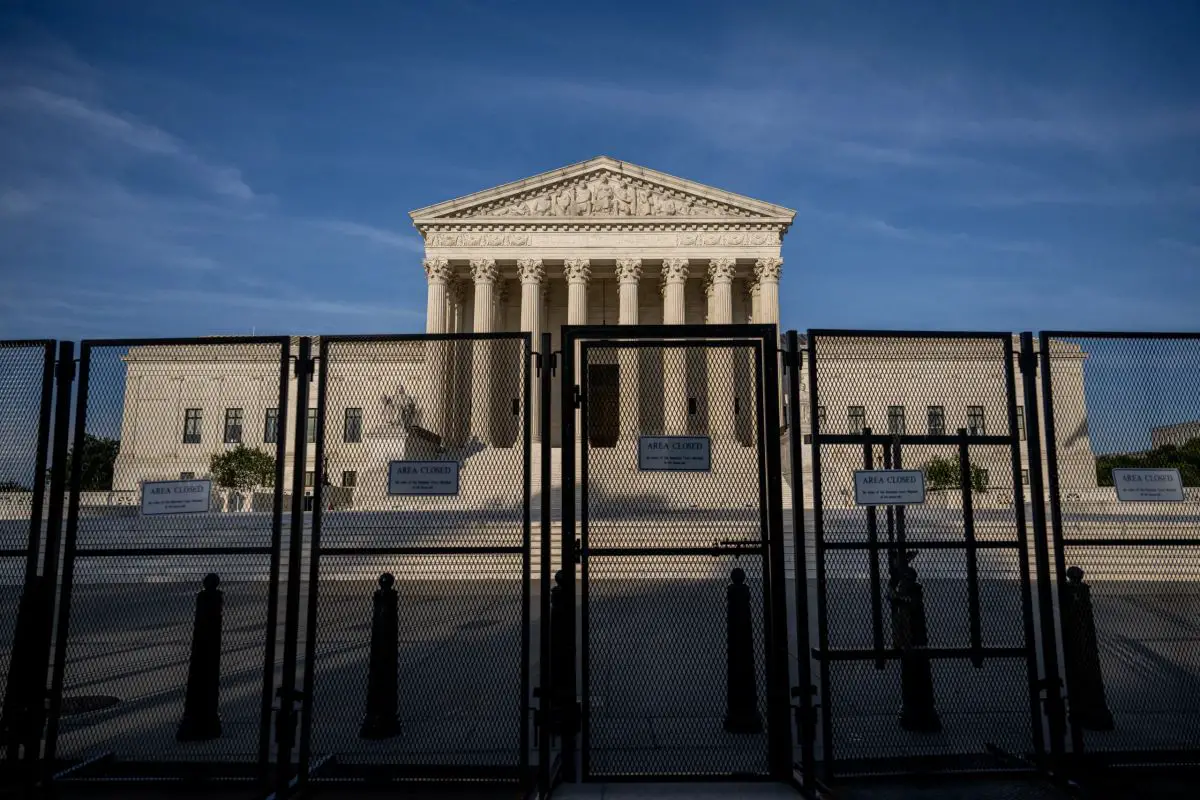In a grand finale to the current Supreme Court term, the decision on Dobbs v. Jackson Women’s Health was handed down this morning. The end result is a reversal of Roe v. Wade and Planned Parenthood v. Casey, essentially reversing nearly 50 years of legal precedent that had previously established a constitutional right to an abortion.
Pro-life organizations and groups have been working for decades to reverse the Roe decision, a case which many legal scholars have said was on shaky legal ground from the very beginning since abortion or anything similar is not mentioned in the constitution.
Democrats and pro-abortion supporters are already up in arms with Congressional leaders already trying to rally some kind of federal legislation to restore abortion in all fifty states:
The Supreme Court on Friday overturned the landmark Roe v. Wade ruling that guaranteed a constitutional right to an abortion in a 6-3 vote, a momentous break from a half century of rulings on one of the nation’s most controversial issues. About half the states have already indicated they would move to ban the procedure.
Supporters of abortion rights were bracing for the loss after an early draft of the opinion was leaked in May, touching off several days of demonstrations in more than two dozen cities. Protesters even showed up outside the homes of some members of the court.
Alarmed by the prospect that Roe would be overturned, Democrats in Congress responded to the leak by holding a Senate vote to advance legislation that would guarantee access to abortion nationwide. The bill was blocked, however, in a largely party-line vote.
The final vote was 5-1-3 with Chief Justice John Roberts concurring with the Dobbs ruling but not joining with the conservative wing of the court to overturn Roe.
Seeing such a split where Roberts agrees with the judgment upholding the Mississippi abortion law and agrees that Roe and Casey should be overturned, but stops short of joining the majority opinion to actually overturn Roe is unusual but should not have been unexpected with the way Roberts has approached cases with a partisan tinge.
In the majority opinion, Alito lays out the case that abortion is not a constitutional right specifically enumerated and as such, regulation of abortion should be correctly returned to the states:
“The Constitution does not confer a right to abortion; Roe and Casey are overruled; and the authority to regulate abortion is returned to the people and their elected representatives,” the justices wrote.
Justices Stephen Breyer, Elena Kagan and Sonia Sotomayor wrote the dissent in the case.
“With sorrow — for this Court, but more, for the many millions of American women who have today lost a fundamental constitutional protection — we dissent,” it began.
As for what the landscape will look like across the country, some states will immediately outlaw abortion while some others will follow suit:
Twenty-two states have laws that would restrict when and how a patient can terminate a pregnancy, according to the Guttmacher Institute, a reproductive health and rights organization.
Arizona, Michigan, North Carolina and Wisconsin are among the 10 states that have pre-Roe abortion bans that will now take effect. Thirteen states — including Idaho, Louisiana, Missouri and Tennessee — have laws enacted since Roe that will be “triggered” by the court’s decision.
A dozen states, including Maine, Maryland, Nevada and Washington, have laws that would protect abortion access up to the point of viability, usually 22 to 24 weeks into a pregnancy.
Colorado, the District of Columbia, New Jersey, Oregon and Vermont have laws that protect abortion access throughout a pregnancy, according to the Guttmacher Institute.
Some states, like Colorado and California, have vowed to become “abortion sanctuaries” that will welcome women from out of state seeking to end a pregnancy.
The inevitable outcome of reversing the misguided Roe decision will land squarely with the incredible legacy of former President Donald Trump. Without his presidency, and the chance to appoint three conservative justices to the court, it’s unlikely the Dobbs decision would’ve ended up this way. Credit must also be given to Sen. Mitch McConnell who had the wherewithal to prevent the nomination of Merrick Garland during the final year of the Obama administration in 2016.
More to come as this story develops…
Donate Now to Support Election Central
- Help defend independent journalism
- Directly support this website and our efforts
